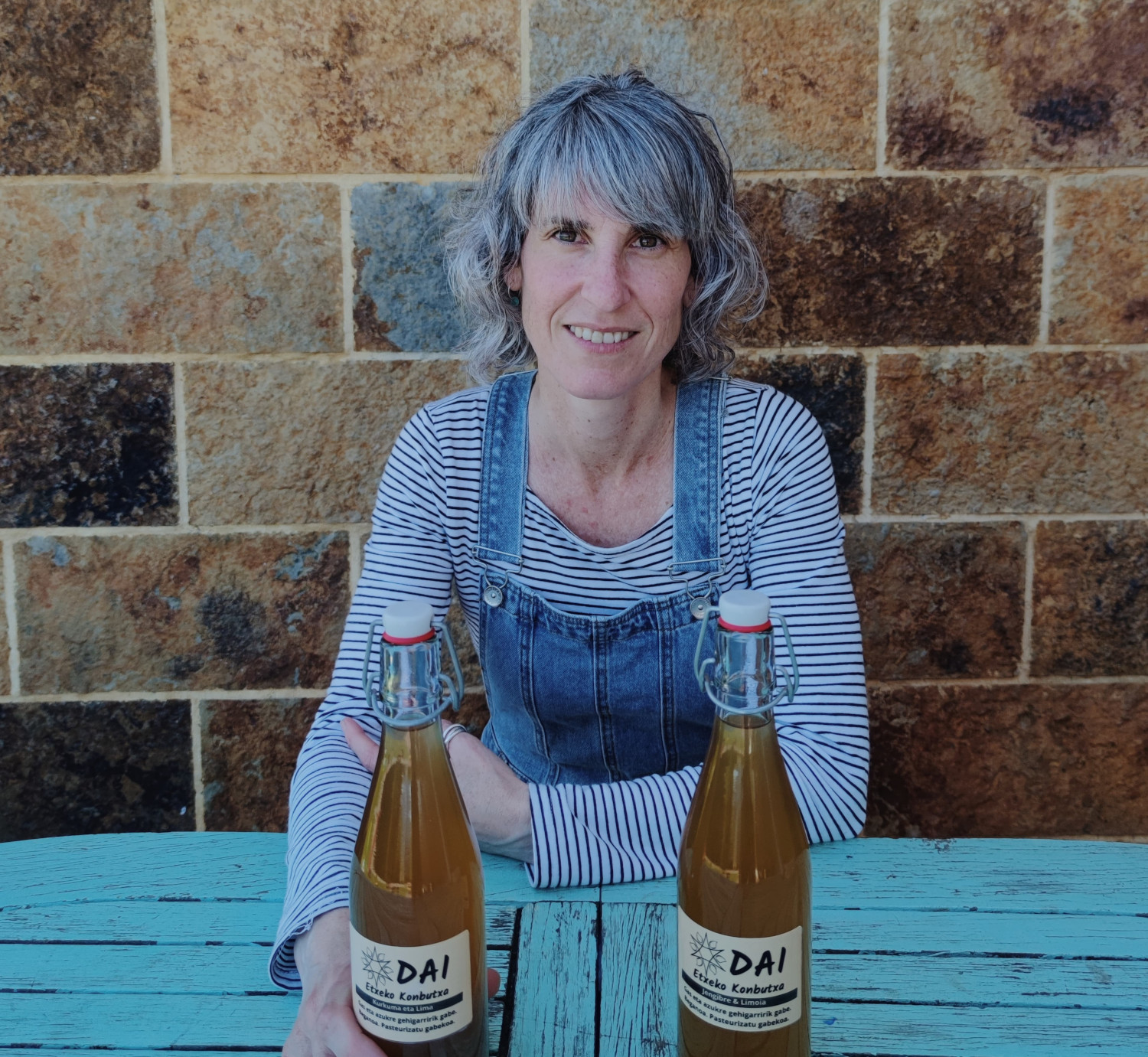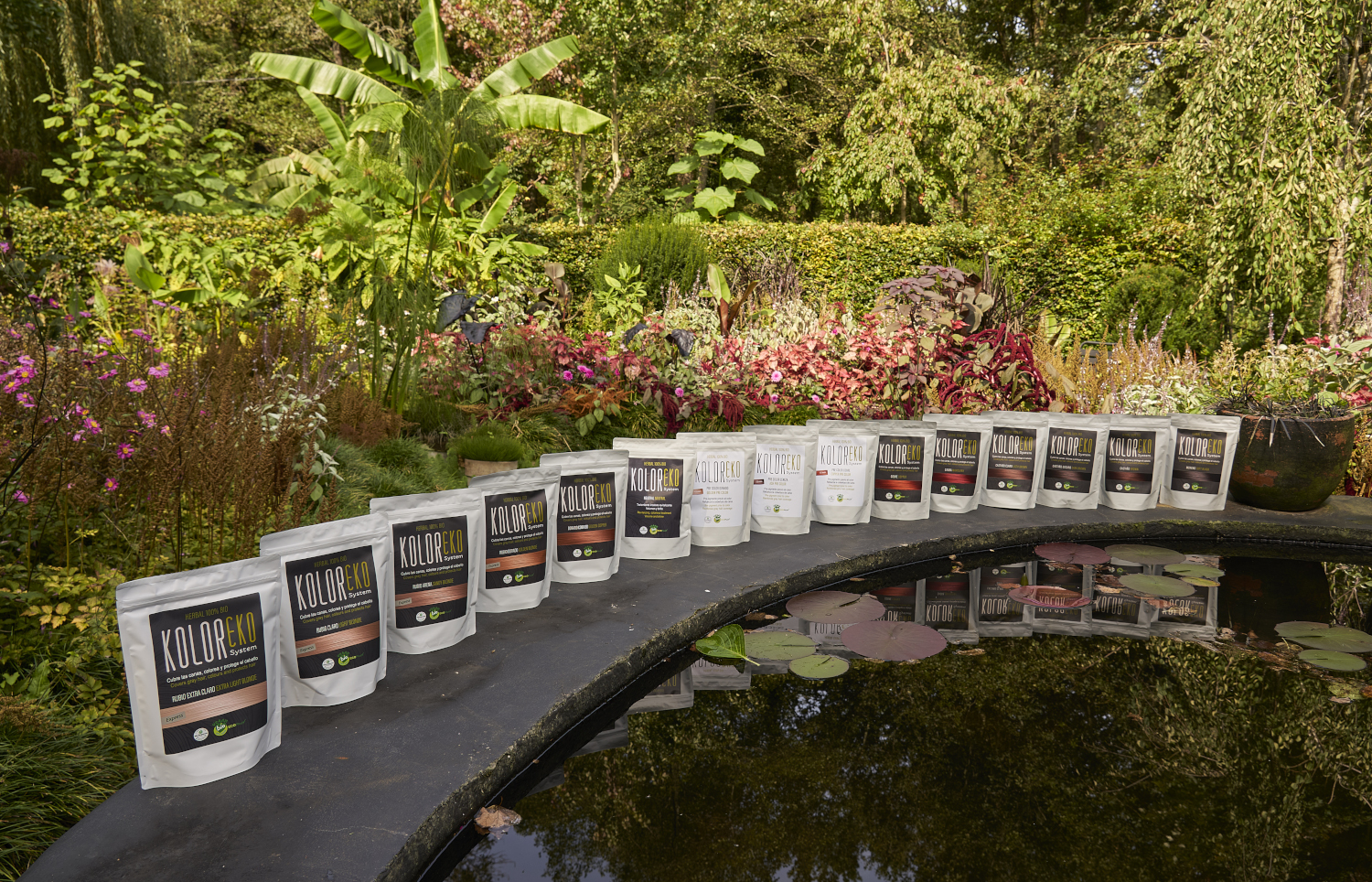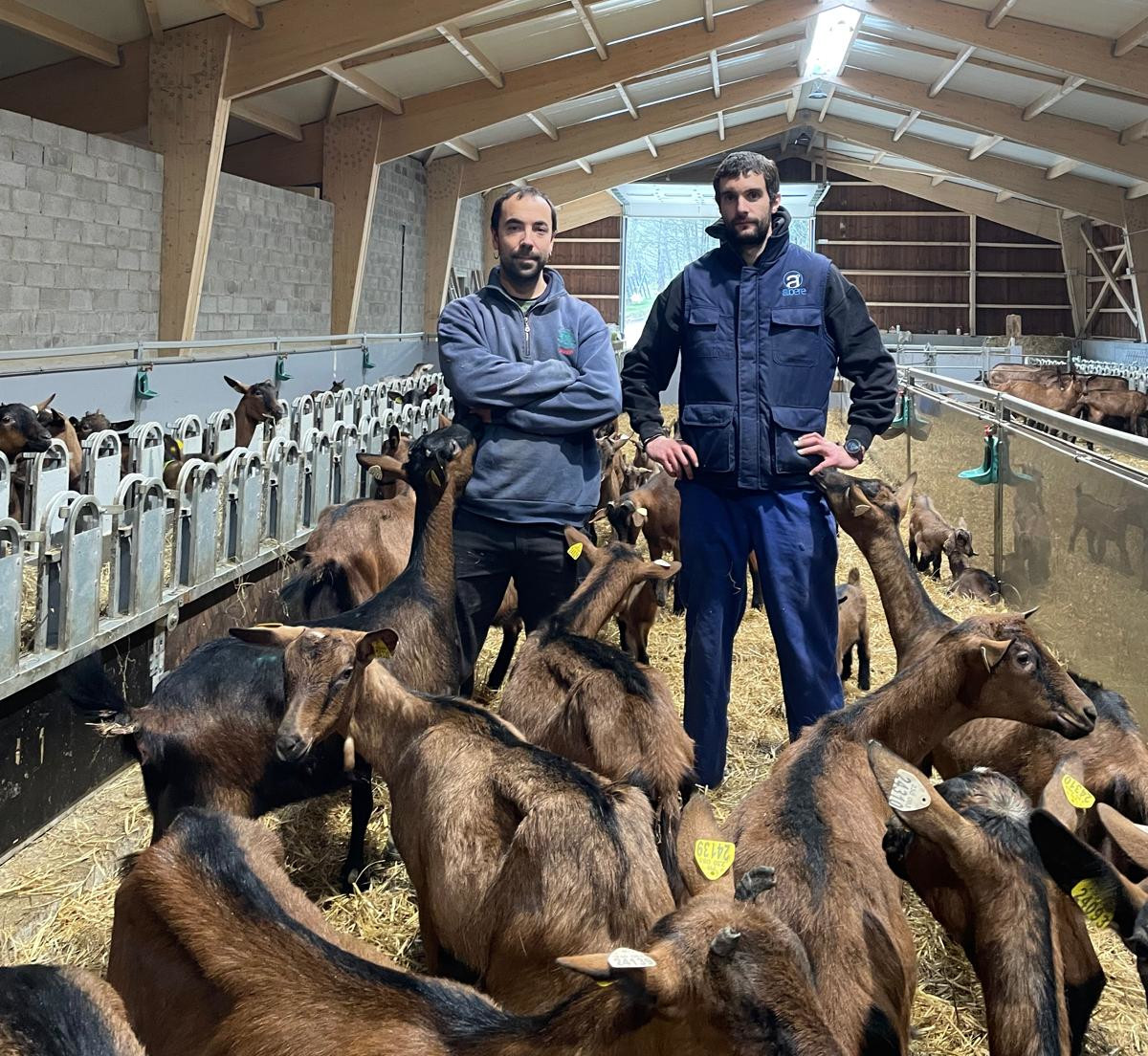Also the bouquets of flowers, native and without chemicals, better
- In recent years much has been written about farmhouses and projects dedicated to horticulture and livestock, but there have not been too many examples of people who have chosen to live from the production and sale of flowers. In this regard, Koldo Hormaza and Joey Albert, members of the Baserriloreak project, have been working for two years: On Mount Izarraitz of Azkoitia, in the open air, the couple is producing flowers in a completely natural and ecological way, which they then sell in the markets of the area. After spending many years in Madrid, they jumped out of journalism to gardening and in 2016 they reached the Arumarrate farmhouse. Since then, they have filled the environment with flowers and colors.

The Baserriloreak project is part of the Slow Flowers movement and regenerative agriculture. “We have many wild flowers in our lands and mix them with the planted to form lots. In addition, we do not use any chemicals in production and the plants are cultivated naturally,” explains Alberto. They don't use greenhouses, and they just plant flowers that adapt well to them. At a height of almost 600 metres, numerous tests are carried out to select the suitable species.
Hormaza invites us to think about where and how the lots of traditional florists have been produced: “The flowers we buy usually come from the Netherlands, but there they go from Ecuador, Kenya or other remote countries.” What does this mean? The flowers we buy have traveled in most cases a machine to get to us, and they have a lot of chemicals to make a long journey without wilting. The products of the Baserriloreak project, in turn, are cut in the afternoon and sold in markets close to the next day, especially in Azpeitia and Azkoitia. It is paradoxical that Slow Flowers reach the houses faster than others.
Spreading the culture of flowers in our environment
The couple says that the flower culture is much more widespread in the United States and in the United Kingdom, and that its aim is to attract and disseminate that culture. “There people put flowers at home every week, it’s not a gift that is only made on birthdays like here,” says Hormaza. Albert went to a flower farm in the United Kingdom to learn how to work.
In addition to production, other activities have also been organised such as the elaboration of a botanic booklet, which will be repeated in July and which can be seen live in eitb.eus. “In the notebook there is a list of flowers from different times and each participant has to look for these plants.” The assemblages are placed in a notebook and together with it form a sheet indicating which flower it is, what it serves and its characteristics. Project members are also receiving courses and training on a continuous basis. “We’re in that movement of working the earth and learning. It’s not about becoming a big company: we want to live from the farmhouse, if possible from the flowers, and we think we’ll do it,” they say.
Duela lau urte abiatu zuten Azpeitian Enkarguk proiektua, Udalaren, Urkome Landa Garapen Elkartearen eta Azpeitiako eta Gipuzkoako merkatari txikien elkarteen artean. “Orain proiektua bigarren fasera eraman dugu, eta Azkoitian sortu dugu antzeko egitasmoa, bere izenarekin:... [+]
Donostiako Amara auzoko Izko ileapaindegi ekologikoak 40 urte bete berri ditu. Familia-enpresa txikia da, eta hasieratik izan zuten sortzaileek ile-apainketan erabiltzen ziren produktuekiko kezka. “Erabiltzaileen azalarentzat oso bortzitzak dira produktu gehienak, baina... [+]
Ubidekoak (Bizkaia) dira Imanol Iturriotz eta Aritz Bengoa gazteak. “Lagunak gara txikitatik, eta beti izan dugu buruan abeltzaintza proiektu bat martxan jartzeko ideia”, azaldu du Iturriotzek. Nekazaritzari lotutako ikasketak izan ez arren, baserri munduarekin eta... [+]
Iruñean bizi ziren Iñaki Zoko Lamarka eta Andoni Arizkuren Eseberri gazteak, baina familiaren herriarekin, Otsagabiarekin, lotura estua zuten biek betidanik. “Lehen, asteburuetan eta udan etortzen ginen eta duela urte batzuk bizitzera etorri ginen”, dio... [+]
Gipuzkoako hamaika txokotatik gerturatutako hamarka lagun elkartu ziren otsailaren 23an Amillubiko lehen auzo(p)lanera. Biolur elkarteak bultzatutako proiektu kolektiboa da Amillubi, agroekologian sakontzeko eta Gipuzkoako etorkizuneko elikadura erronkei heltzeko asmoz Zestoako... [+]
Emakume bakoitzaren errelatotik abiatuta, lurrari eta elikadurari buruzko jakituria kolektibizatu eta sukaldeko iruditegia irauli nahi ditu Ziminttere proiektuak, mahai baten bueltan, sukaldean bertan eta elikagaiak eskutan darabiltzaten bitartean.





















